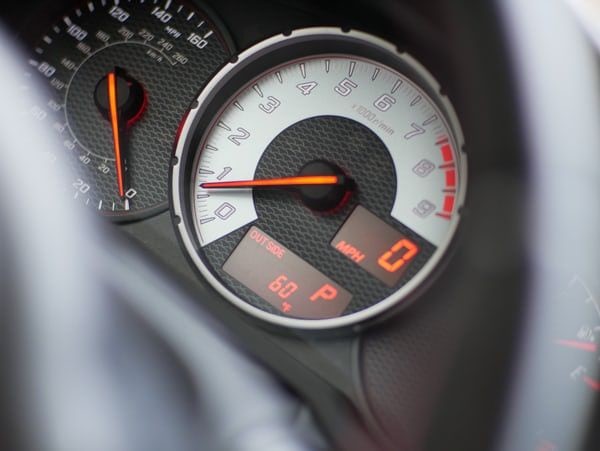We know that taking your New Jersey road test can be nerve-wracking. With a little preparation and insight into the test itself, there’s nothing to be worried about. This guide will make sure you know the specific requirements in New Jersey, what you can expect on the road test itself and give our best practice tips. Here’s exactly what you need to know to pass your New Jersey road test.
What to know before your New Jersey road test
First, you need to have a road test scheduled. There are no walk-ins. You can book your New Jersey Motor Vehicle Commission (MVC) road test online. Next, make sure you have valid registration and insurance for the vehicle you’ll be taking your test in. You’ll need these documents at the MVC the day of your test. Also, make sure your testing vehicle meets New Jersey requirements and that you have a licensed driver to accompany you to your road test. We’ve listed the car requirements out for you in the next section, to make it easier to go through and check off each one.
Once you verified your road test, paperwork, and car requirements, it’s time for more practice. In New Jersey, you're not allowed to practice in the neighborhood around the DMV where your road test is scheduled, but feel free to practice in other parking lots and neighborhoods.
What are the vehicle requirements for your New Jersey Road Test?
Many people are denied testing because their car doesn’t meet the necessary requirements. Check these and check them again. Here’s what your testing vehicle needs to have:
- An emergency brake in the center console
- Current registration, insurance, and inspection sticker
- A windshield with no cracks or debris that would obstruct the view
- Operable doors: the driver and passenger doors must open from inside and outside
- Working lights: brake lights, front and back turn signal lights, headlights and taillights
- Key safety requirements: working speedometer, horn, rearview mirror, seatbelts, and windshield wipers
- No service or warning lights illuminated on the dashboard
- *If under 21* you must have the red, reflective license plate decals on your front and back plates for the road test (If you don't have these, you can buy them the day of your road test at the MVC for about $4).
If you don’t have a car or yours doesn’t meet these requirements, you have a few options. You can get a car through a driving school, see if a friend or family member is available to accompany you and lend their car, or Skip offers a car and driver service for New Jersey road tests, which you can reserve ahead of time online.
What to know the day of your New Jersey road test
First, get to your road test early! If you’re late, the MVC will ask you to reschedule. We recommend arriving 15 minutes before your scheduled test time. Also, remember to bring your Learner’s Permit along with the car registration and insurance, which you should have in the glove compartment.
In New Jersey, when you arrive at the MVC, you won't go inside to check-in, but instead, you'll pull straight into the road test lane outside. It's an open area in the parking lot and the road test line will be obvious, as it's often clearly marked by orange cones. You'll wait there in your car with your licensed driver until an examiner comes out to meet you. They'll ask for your Learner's Permit as well as the insurance and registration for the vehicle. Then your licensed driver will get out, you'll move to the driver's seat and the examiner will start the test off with the safety check. They'll ask you to show working lights, turn signals, hand signals, and horn.
Then it's time for the driving portion of the test. At most all New Jersey testing sites, the road test will start in the parking lot, where you'll be asked to parallel park and perform your 3-point turn. After these maneuvers, you'll head out to the road* to do the remainder of the test in actual traffic. When leaving the MVC, watch for stop signs before proceeding to the road. Many people miss the stop sign and drive right out, which is an automatic fail.
* Except at the Rahway MVC, where the entire test is done in the open parking lot.
What you will be tested on for the New Jersey road test
- 3-Point turn ("K turn")
- Parallel parking: Remember, you can't touch the curb at all during this parking maneuver, or it's an automatic fail.
- Stop sign approach: Don't be too timid or too fast and make sure you stop before the white line.
- Observing right-of-way: Allow pedestrians to cross. Remember to pull over and stop for emergency vehicles to pass and don’t enter an intersection where you’ll interfere with other traffic.
- Stopping smoothly: Start braking well ahead of time to avoid a sharp or jerky stop.
- Backing up: Back up for a distance of 50 feet at a slow speed while turning your head and looking over your right shoulder to the rear.
- Signaling and turning: Get into the proper lane and signal your turn for the last *200 feet*.
- Passing: always look ahead and behind to make sure you can pass safely.
- Following at a safe distance: Don’t follow too close behind other cars. Keep a minimum following distance of three to four seconds.
Lastly, don't forget to check your blind spot when backing up, parallel parking, switching lanes or as needed. You need to actually turn and look. Many people get points off for not doing this.
What happens after my New Jersey road test?
Congratulations on making it this far! If you pass, you'll immediately get your license on site. The tester will tell you where to go. If you failed, you need to wait at least 2 weeks before you can take the test again. If you fail more than twice, the MVC may require you to wait six months before taking the test again. Each time, make sure you have a licensed driver with you and car for the road test. In the meantime, keep practicing. 🙂

